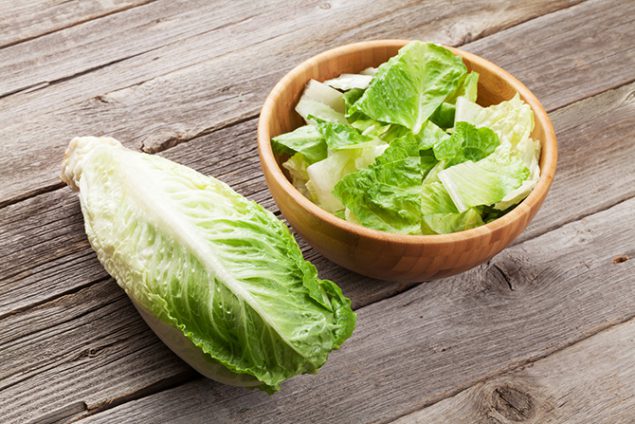2018 E. coli Outbreak Linked to Romaine Lettuce A – Advice
Final Update
This outbreak appears to be over. E. coli is an important cause of illness in the United States. More information about E. coli, and steps people can take to reduce their risk of infection, can be found on the E. coli and Food Safety web page.

According to the FDA, the last shipments of romaine lettuce from the Yuma growing region were harvested on April 16, 2018 and the harvest season has ended. Contaminated lettuce that made people sick in this outbreak should no longer be available.
Advice to Consumers
-
Take action if you have symptoms of an E. coli infection:
- Talk to your healthcare provider.
- Write down what you ate in the week before you started to get sick.
- Report your illness to your health department.
- Assist public health investigators by answering questions about your illness.
-
Follow these steps to help keep you healthy and your fruits and vegetables safer to eat:
- Wash your hands before and after preparing fruits and vegetables.
- Wash or scrub all fruits and vegetables under running water before eating, cutting, or cooking.
- Fruits and vegetables labeled “prewashed” do not need to be washed again at home.
- Use a separate cutting board for fruits and vegetables that is never used for cutting or preparing raw meats, poultry, or seafood.
- Store fruits and vegetables away from, and not next to or below, raw meat, poultry, or seafood. These items can drip juices that may have germs.
- Follow these general ways to prevent E. coli infection:
- Wash your hands. E. coli infections can spread from one person to another. Wash hands after using the restroom or changing diapers, before and after preparing or eating food, and after contact with animals.
- Don’t prepare food or drink for others when you are sick.
- Cook meats thoroughly to kill harmful germs. Cook steaks and roasts to at least 145˚F and let rest for 3 minutes after you remove meat from the grill or stove. Cook ground beef and pork to at least 160˚F. Use a food thermometer to check the temperature of the meat.
- Don’t spread germs from raw meat around food preparation areas. Thoroughly wash hands, counters, cutting boards, and utensils after they touch raw meat.
- Wash fruits and vegetables before eating, unless the package says the contents have been washed.
- Avoid raw milk, other unpasteurized dairy products, and unpasteurized juices.
Advice to Clinicians
- Antibiotics are not recommended for patients with E. coli O157 infections. Antibiotics are also not recommended for patients in whom E.coli O157 infection is suspected, until diagnostic testing rules out this infection.
- Some studies have shown that administering antibiotics to patients with E. coli O157 infections might increase their risk of developing hemolytic uremic syndrome (a type of kidney failure), and the benefit of antibiotic treatment has not been clearly demonstrated.